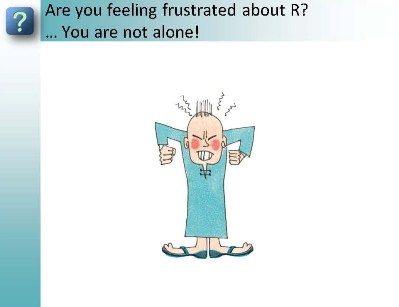Communication access realtime translation (cart) is provided in order to facilitate communication accessibility and may not be totally verbatim. The consumer should check with the moderator for any clarifications of the material.
This text-based course is the written transcript of the live event, “Implementing a Phonetically Consistent Approach to /r/ Remediation”, presented by Christine Ristuccia on January 30, 2012.
>> Amy Hansen: Welcome to today's expert seminar, “Implementing a Phonetically Consistent Approach to /r/ Remediation” presented by Christine Ristuccia. We're so pleased to have her with us today. My name is Amy Hansen and I will be your moderator for today's online course. Christine Ristuccia received her Master of Science degree in communicative disorders at the University of Redlands, Redlands, California and a Bachelor of Science degree in health sciences from San Diego State University. Christine is an experienced school-based speech‑language pathologist and most recently worked for Savannah‑Chatham County School District in Savannah, Georgia at the preschool and elementary levels. She has worked with a wide range of communicative disorders ranging from preschool to adulthood. Christine founded Say It Right in 1999. She developed The Entire World of R, a phonemic approach to /r/ remediation, authored several books and has spoken throughout the US on articulation disorders in addition to yoga products and cards. So welcome, Christine. Thank you so much for joining us today.
[Applause]
>> Christine Ristuccia: Thank you, Amy. Welcome, everybody, to learning all about /r/, a phonetically consistent approach to /r/ remediation. I always like to show this first slide about feeling frustrated about /r/.

Usually when we talk about /r/ a lot of people have the concern that it is hard for them to assess /r/, students feel like it sounds like they're swallowing their tongue, there’s a lack of motivation, etc. So, the concerns that I'm listing now may be similar to those that you may have. If you do have those concerns you are definitely not alone. I always encourage participants to e-mail me after the presentation about their successes. My goal for you is to not leave this course feeling frustrated but actually very enthusiastic and motivated about trying a new approach to /r/. So, please e‑mail me questions, concerns, your success stories because I definitely want to hear about them. Using a phonemic approach to /r/ will greatly assist you in meeting the needs of your students and you will have the tools to be a “detective’ in /r/ remediation and treatment if you use this exciting approach.

